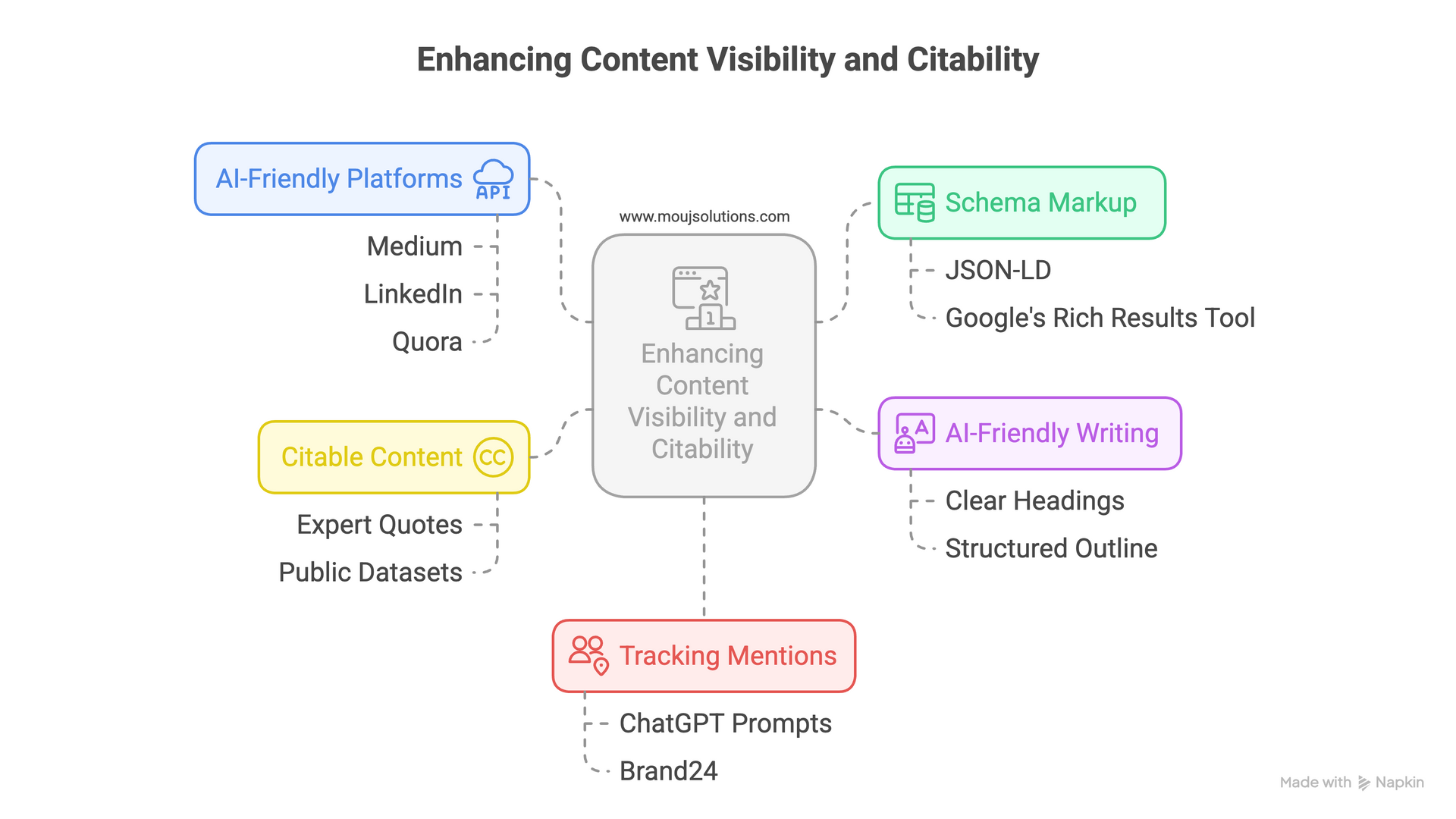What is Generative SEO? | Guide to AI Search Visibility 2025

What is Generative SEO?
Introduction
In early 2023, Google unveiled its experimental Search Generative Experience (SGE), a bold shift toward AI-generated summaries and answers in search results. Not long after, Perplexity.ai crossed over 10 million monthly active users, offering AI-driven conversational answers pulled directly from structured content. Meanwhile, OpenAI announced that ChatGPT's Pro users could now browse real-time web content and reference live URLs.
These developments signaled a seismic shift in SEO. Suddenly, being ranked wasn’t enough—you had to be referenced, structured, and cited by AI engines.
Enter: Generative SEO — a strategy designed to help your brand get picked by AI.
What is Generative SEO?
Generative SEO (also called GEO or AI SEO) is the practice of optimizing your content so that AI search engines—like ChatGPT, Perplexity, Google’s Gemini, and others—recognize, summarize, and cite your brand in AI-generated answers.
Unlike traditional SEO, which focuses on keyword ranking, generative SEO focuses on:
- Structure (schema, semantic clarity)
- Contextual credibility (linked sources, entity recognition)
- Presence across AI-crawled platforms
Think of it like dressing up your content so AI wants to take it to prom.
Academia also backs this up. A 2023 arXiv study "Evaluating Verifiability in Generative Search Engines" found that only 51.5% of sentences and 74.5% of citations in answers were accurate—highlighting the need for structures AI can trust,
And Wikipedia concisely defines “Generative Engine Optimization” (GEO) as the practice of optimizing for visibility in generative AI, with GEO strategies surfacing in public domains by 2023.
Does Generative SEO Matter?
AI engines are now
gatekeepers to visibility.
If your content isn’t structured, AI can’t parse it. If AI can’t parse it, you don’t get cited. If you’re not cited, you’re invisible.
- ChatGPT references sources based on structure + clarity
- Perplexity prefers trusted, multi-sourced, schema-backed content
- Google’s AI Overviews cite based on topical authority + structured markup
How to Implement Generative SEO?
- Add Schema Markup
- Use JSON-LD for FAQs, Articles, How-To
- Validate with Google’s Rich Results tool
- Write for AI Scanners, Not Just Humans
- Clear headings (H2s), lists, questions + answers
- Avoid fluff. Structure everything like an outline
- Be Citable
- Quote experts, cite studies, link to public datasets
- Use bylines, timestamps, and link to author pages
- Get Listed Across AI-Friendly Platforms
- Republish content (with canonical tags) on Medium, LinkedIn, Quora
- Answer questions in Reddit and niche forums
- Track Mentions in AI Engines
- Regularly prompt ChatGPT and Perplexity with your brand keywords
- Use tools like Brand24 or ChatRank to track citations

Examples in the Wild
- Zapier’s blog regularly appears in ChatGPT outputs due to structured how-to content and strong domain authority.
- Ahrefs blog ranks in Perplexity citations because of deep-linking, structured sections, and rich FAQs.
- Moz blog frequently shows up in AI summaries due to educational SEO content.
- HubSpot blog appears in Gemini thanks to topical clusters and schema-backed tutorials.
- Search Engine Journal provides regular commentary on AI and SEO trends that AI platforms pull from.
FAQs
What is Generative SEO?
Generative SEO is a modern optimization strategy that helps your content get discovered and cited by AI tools like ChatGPT, Perplexity, and Google's AI Overviews. It focuses on structure, trust signals, and semantic clarity.
How is Generative SEO different from traditional SEO?
Traditional SEO aims for top rankings on search engine results pages. Generative SEO focuses on getting cited in AI-generated responses by feeding AI clear, structured, and trustworthy content.
Do I need schema markup for Generative SEO?
Yes. Schema markup (like JSON-LD for FAQs or How-To guides) helps AI systems understand your content better. It boosts your visibility in AI-generated answers.
Where should I post content to get recognized by AI search engines?
In addition to your website, repurpose your blogs on Medium, LinkedIn, Quora, and Reddit. These platforms are frequently indexed by AI engines.
Can Generative SEO improve my traffic?
Yes and no. You may get fewer clicks than traditional SEO, but you’ll gain visibility and trust in AI summaries—which is increasingly where users get answers.
Final Thoughts
Generative SEO is no longer optional—it’s your seat at the AI table. As LLMs reshape how we search, visibility isn’t about traffic—it’s about trust and structure.
The brands that teach AI how to think will be the ones AI remembers.
So go ahead. Teach it well. Feed it right. Give it the kind of content that makes it say, “Damn, that’s a good source.”
And if you are ready to get your brand cited by ChatGPT and show up in AI search? Reach out to Mouj Solutions for a tailored Generative SEO strategy that makes your content AI-ready and citation-worthy.

